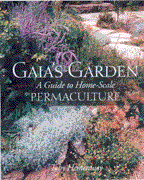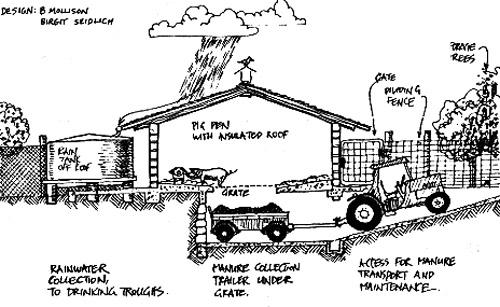(Certificate Course)
This is a series of field-based classes. Classes can be taken in series or separately. Read more details below if you are interested in permaculture certification.
Class One: Introduction to Sustainable Design Principles
May 15 - 19, 2010 (arrive to site on May 14th, leave May 19th after 6pm); see Workshop I Schedule (for last year!)
 With Scott Pittman, founder of Permaculture Institute and Toby Hemenway, author of first major North American book on permaculture, Gaia’s Garden: A Guide to Home-Scale Permaculture.
With Scott Pittman, founder of Permaculture Institute and Toby Hemenway, author of first major North American book on permaculture, Gaia’s Garden: A Guide to Home-Scale Permaculture.
- Pattern Literacy & Pattern Thinking for Sustainability;
- Permaculture Methodology for Productive Landscape Design - site, sector & zone
- Soils & Biodiversity
Hands-on exercises in observation, reading the landscape, soil preparation (mulching, compost use, inoculation with beneficial organisms), spring planting (vegetables, annual and perennial flowers, herbs). Please note: hands-on portion is about 1/4 of the class time.



 Permaculture
Permaculture





